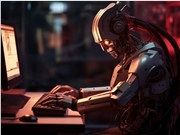Recently, the first AI chess competition jointly held by Google and Kaggle has attracted a lot of attention. In this "battle of intellect," Grok4 from Musk's company showed extraordinary strength and became the absolute focus of the first day of the competition.
This competition brought together several top AI models. The participants included o3 and o4-mini from OpenAI, DeepSeek R1, Kimi K2Instruct, Gemini 2.5Pro, Gemini 2.5Flash, Claude Opus4, and Grok4. The competition was live-streamed daily at 10:30 PM (Pacific Time) from August 5 to 7, and international chess grandmaster Hikaru Nakamura was invited as the commentator.

In the first day's match, Grok4 received the highest evaluation for its exceptional tactical performance and quick response, while DeepSeek R1, although performing strongly, lost to o4-mini. Kimi K2 was considered to have suffered unfairly, and netizens voiced their support for it. Musk calmly responded to the success of the competition: "We did not specifically train for it; it was just a side product." It is evident that he understands the promotional value of this competition well.
Although the competition results sparked heated discussions, its real significance lies in testing the "emergent capabilities" of AI. Chess, with its clear rules and high complexity (there are about 10^120 possible positions), has become an ideal stage for evaluating AI decision-making abilities. Many netizens said that this competition is not just a battle of wins and losses but also a comprehensive display of AI capabilities.
After the first round, Grok4, Gemini 2.5Pro, OpenAI's o4-mini, and o3 advanced to the semi-finals. In each match, Grok4 performed like a fierce beast, which amazed the audience. Meanwhile, Kimi K2's frequent violations led to its risk of elimination, and the audience expressed dissatisfaction. Despite this, the competition continued, and people look forward to the exciting matches ahead.









